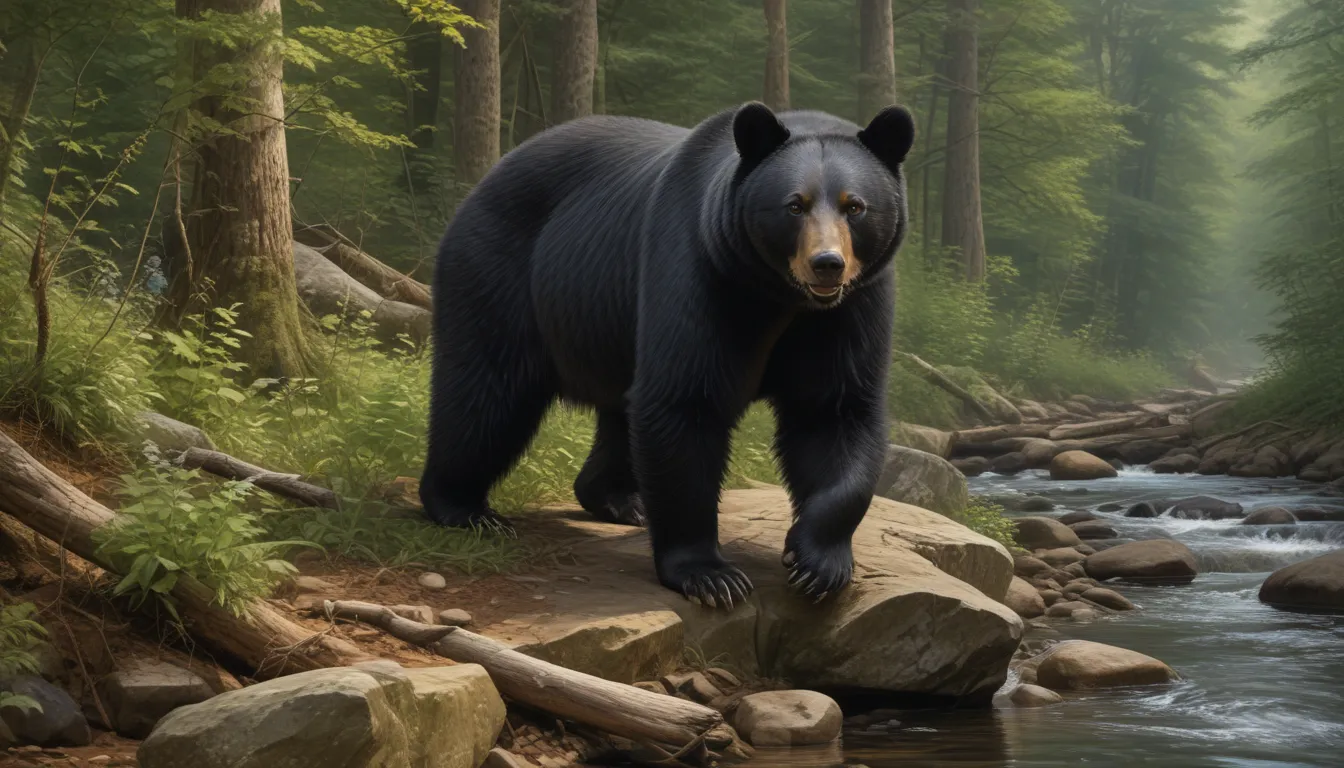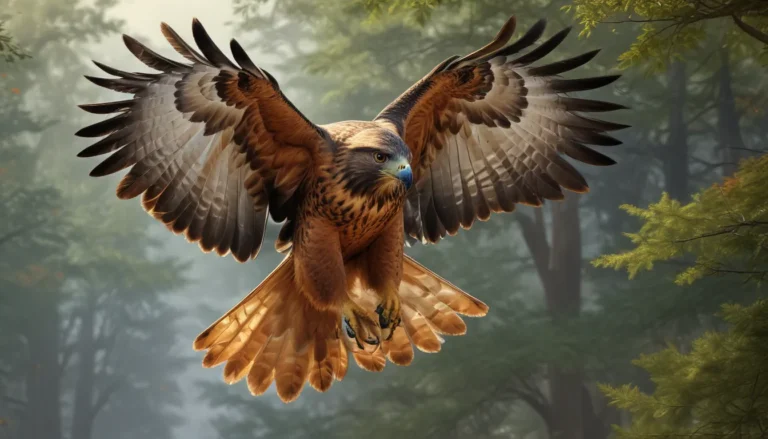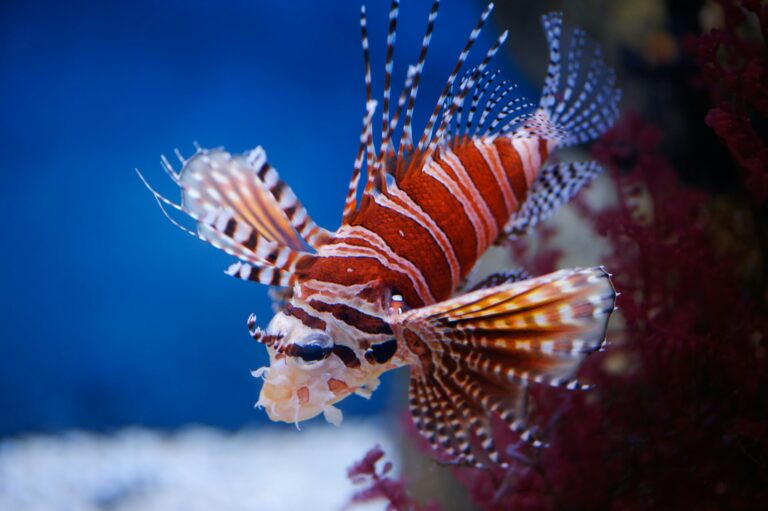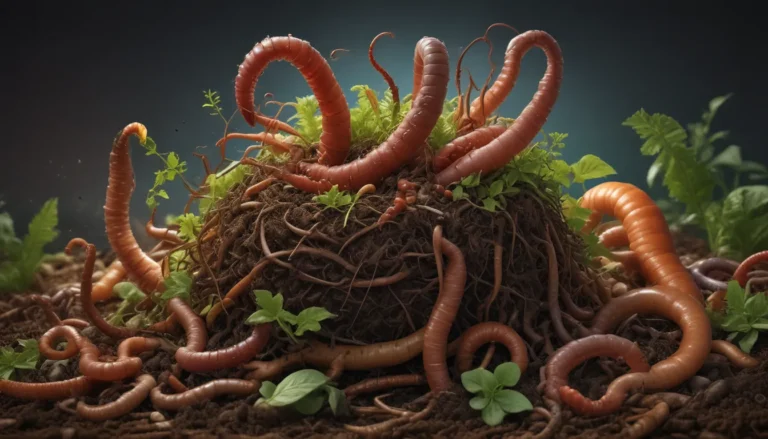The pictures we use in our articles might not show exactly what the words say. We choose these pictures to make you interested in reading more. The pictures work together with the words but don’t take their place. The words still tell you the important facts.
Pennsylvania is a haven for a diverse range of wildlife, with one of the most captivating creatures being the black bear. These iconic animals have long been a source of fascination, embodying strength and beauty. Found throughout various regions of the state, Pennsylvania black bears are not only known for their size and power but also for their unique behaviors and remarkable adaptability. In this article, we will delve into 18 intriguing facts about black bears in Pennsylvania, shedding light on their habitat, diet, reproduction, and the vital role they play in the ecosystem. Whether you are a wildlife enthusiast or simply curious about these majestic creatures, get ready to be astounded by the captivating world of Pennsylvania black bears.
Pennsylvania’s Captivating Black Bears: A Thriving Population
Pennsylvania boasts one of the largest black bear populations in the United States. With ample suitable habitats and abundant food sources, these magnificent creatures have found a welcoming home in the state, contributing to the rich tapestry of its wildlife.
The Magnificent Size of Pennsylvania’s Black Bears
Adult male black bears in Pennsylvania can weigh anywhere between 200 to 700 pounds, making them the largest land mammals in the state. Females, while slightly smaller, can still reach impressive weights of 100 to 600 pounds, showcasing their formidable presence in the wild.
A Culinary Adventure: Pennsylvania Black Bears’ Diverse Diet
Black bears in Pennsylvania are omnivores, meaning they have a varied diet that includes plants and animals. From berries, acorns, nuts, and grasses to insects and occasional small mammals or carrion, these bears have a diverse palate that aids in their survival in the wild.
Embracing the Chill: Black Bears’ Hibernation in Winter
During the harsh winter months, Pennsylvania's black bears retreat to their dens and enter a state of hibernation. This period helps them conserve energy and endure the challenging winter conditions, showcasing their remarkable ability to adapt to their environment.
A Nose for Success: Black Bears’ Exceptional Sense of Smell
Black bears possess one of the most impressive senses of smell among all land animals. Their olfactory abilities allow them to detect scents from miles away, making them adept hunters and foragers in their quest for sustenance.
Solitary Yet Social: Pennsylvania’s Black Bear Behavior
While black bears in Pennsylvania may occasionally form small family groups, they are primarily solitary animals. Adult males claim territories ranging from 10 to 50 square miles, while females have smaller territories of about 2 to 10 square miles, demonstrating their independent nature.
Masters of Evasion: Black Bears’ Swimming and Climbing Skills
Pennsylvania's black bears are not only adept swimmers but also excellent climbers. With their agility and strength, they can swiftly ascend tall trees to escape threats or search for food, showcasing their versatile skill set in navigating their environment.
Balancing Act: Pennsylvania’s Regulated Bear Hunting Season
To manage the healthy black bear population in the state, Pennsylvania has established a regulated bear hunting season. This helps maintain a balance between the bear population and their habitat, ensuring a sustainable coexistence with human activities.
Family Bonds: Black Bear Cubs and Their Mothers
After a gestation period of approximately seven months, female black bears give birth to 1-4 cubs. These cubs stay with their mother for over a year, learning essential survival skills before venturing out on their own, highlighting the strong maternal bond within bear families.
Vocal Virtuosos: Black Bears’ Communication Skills
Black bears communicate through a variety of vocalizations, including woofs, growls, huffs, and clicks, to convey messages to each other. They also rely on body language, such as standing on hind legs or specific postures, to communicate effectively within their social interactions.
Guardians of the Ecosystem: The Vital Role of Pennsylvania’s Black Bears
Black bears play a crucial role in shaping the ecosystem of Pennsylvania by dispersing seeds through their scat and helping maintain plant populations. Additionally, they aid in controlling herbivore populations and contribute to the nutrient cycling within their environment, underscoring their importance in maintaining ecological balance.
The State Symbol: Black Bears as Pennsylvania’s Official State Mammal
In recognition of their significance and presence in the state, black bears were designated as the official state mammal of Pennsylvania in 1980, honoring their status as an iconic and cherished wildlife species.
Ears Wide Open: Black Bears’ Acute Hearing Abilities
In addition to their exceptional sense of smell, black bears also possess excellent hearing abilities. They can detect the rustling of prey or potential threats from a distance, showcasing their keen sensory perception in navigating their surroundings.
Friends, Not Foes: Black Bears’ Non-Aggressive Stance Toward Humans
Despite their size and strength, black bears are generally non-aggressive toward humans. They prefer to avoid confrontations and will typically retreat if they sense danger, highlighting their shy and elusive nature in their interactions with people.
Vigilant Monitoring: The Oversight of Pennsylvania’s Black Bear Population
The Pennsylvania Game Commission diligently monitors the black bear population through various scientific research methods, field surveys, and data collection. This proactive approach helps ensure the well-being of the bears and maintains a harmonious balance with human activities in the state.
Memory Lane: Black Bears’ Exceptional Retention Abilities
Black bears possess remarkable long-term memory, recalling locations of food sources, territories, and other landmarks for several years. This cognitive ability aids them in navigating their environment and adapting to changing conditions over time.
A Hub of Knowledge: Pennsylvania’s Bear Education Center
To educate the public about black bears and promote coexistence, Pennsylvania has established a Bear Education Center in Tionesta. Visitors can delve into the world of bear biology, behavior, and safety measures, enhancing their understanding and appreciation of these majestic creatures.
Sprinting Giants: Black Bears’ Speed in Action
Despite their size, black bears are surprisingly fast runners, capable of reaching speeds of up to 35 miles per hour when needed. This agility and quickness highlight their versatility and adaptability in navigating their environment with speed and efficiency.
In conclusion, the 18 Pennsylvania Black Bear Facts illuminate the remarkable presence of black bears in the state and underscore their vital role in maintaining ecological harmony. These magnificent creatures continue to captivate wildlife enthusiasts and nature lovers with their unique characteristics and behaviors, enriching the beauty of Pennsylvania's wilderness.
FAQs About Pennsylvania Black Bears:
- Q: How big do Pennsylvania black bears get?
-
A: Male black bears can weigh between 200 and 700 pounds, while females typically range between 100 and 400 pounds.
-
Q: What do Pennsylvania black bears eat?
-
A: Pennsylvania black bears have an omnivorous diet, feeding on plants, berries, nuts, insects, fish, and occasionally small mammals and carrion.
-
Q: Are black bears dangerous?
-
A: While black bears are generally shy and try to avoid human interaction, it is important to give them space and not approach or provoke them. Always ensure proper food storage when in bear country.
-
Q: Do Pennsylvania black bears hibernate?
-
A: Yes, Pennsylvania black bears hibernate during the winter months. They enter a state of reduced activity, conserving energy by sleeping and living off their fat reserves.
-
Q: How long do Pennsylvania black bears live?
-
A: On average, black bears in Pennsylvania live for about 20 to 25 years in the wild.
-
Q: Do black bears climb trees?
-
A: Yes, black bears are excellent climbers and use their strong claws and agility to climb trees to escape danger or to forage for food.
-
Q: Are Pennsylvania black bears endangered?
- A: No, Pennsylvania black bears are not considered endangered. Their population is stable, thanks to conservation efforts and proper wildlife management.
Whether you are strolling through the majestic forests of Pennsylvania or seeking to understand the wonders of black bears from afar, these fascinating facts offer a glimpse into the captivating world of these iconic creatures. By appreciating and respecting the significance of Pennsylvania's black bears, we can foster a harmonious coexistence with nature and ensure the conservation of these magnificent animals for generations to come.






